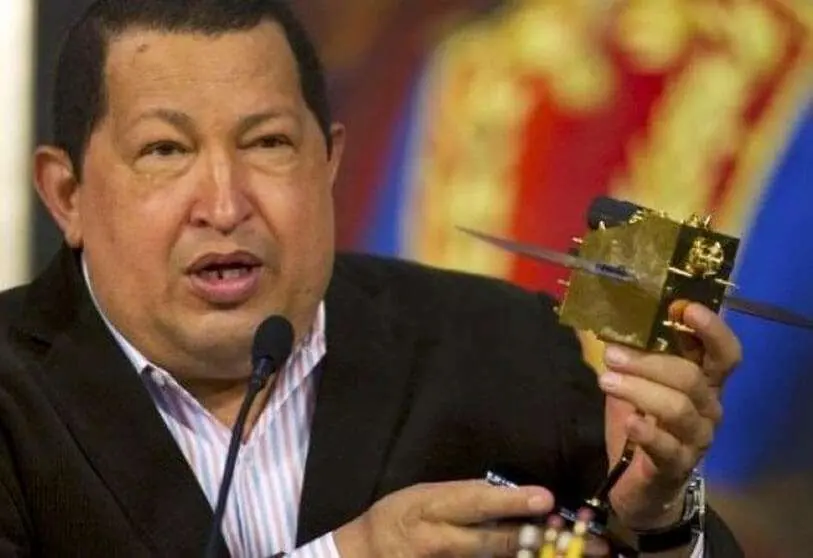Populism, the peculiar Latin American contribution

"It is the practical demonstration of how democracy can be destroyed by demagogy". The definition is by Enrique Krauze, Mexican historian, essayist and editor, presented at the 26th Euro-Latin American Forum, held in person and online from Madrid, organised by the Association of European Journalists.
For the also founder and director of Letras Libres, "the best training to defend democracy at all costs is to live under a dictatorship". He referred to the new paradigm established in Venezuela by Hugo Chávez, with roots in Argentinean Peronism and with the unquestionable support of Cuban Castroism. All of this was to shape a transformation of the Marxist left, based on a "charismatic leader" of genuine Latin American character.
Krauze admits that, once in power, populism proceeds to systematically curtail freedoms while installing a progressive dependence of citizens on the subsidies and grants that power provides. Thus, the charismatic leader, who had become a caudillo, turned his power into a new feudalism, in which citizens returned to their condition as vassals, subject to the all-embracing will of their tyranny. It is not surprising that populism has caught on so well, not only in several large American countries, including the United States of Trump, but also in Europe, with its ethnic and nationalist variants.
The Mexican intellectual recommends a re-reading of Orwell's novel "1984", in his opinion as topical as it was in the days of Stalinism, because it poses a fairly similar situation, that of a single individual who thinks and reflects, and decides to seek the truth in the face of a system that crushes him, dictates to him what is true or false and from which the distinction between good and evil has disappeared.
It was one of the most brilliant conversations at the Forum, along with other important conversations with the economists of the Inter-American Development Bank, José Juan Ruiz and Alejandro Izquierdo, the founding director of the Latinobarómetro Corporation, Marta Lagos, the former president of the Spanish government, Felipe González, the Ibero-American secretary general, Rebeca Grynspan, and the EU's high representative for the Common Foreign and Security Policy, Josep Borrell.
Borrell was precisely complaining that "his boss", Commission President Ursula von der Leyen, had not included a single mention of Latin America in her brilliant 8,000-word speech to the European Parliament. An omission that evidences the scant political and geostrategic interest that the EU-27 appear to attribute to a continent in which other powers, especially China, are establishing themselves and displaying their formidable power.
It is true that Europe has slowed down the pace of investment in Latin America, but even so, it has a higher volume of investment than, for example, Japan, China and India together. It is also by far the biggest contributor to development assistance on the continent, though, as Borrell himself states, this aid will not bear fruit unless there is democratic, honest and vigorous governance in the countries themselves. It's the old axiom that a one-off donation helps satisfy hunger one day, but you need to be taught to stand on your own two feet and work for yourself to eat every day.
And it's not exactly a good thing for the digital revolution already underway worldwide that 46 million Latin American families don't have access to the internet. It means that almost a quarter of the continent has been irretrievably left behind, just when the UN Economic Commission for Latin America (ECLAC) has certified the continent's biggest recession in a century (see Carlos Álvaro's report in Atalayar). These are devastating figures which, with the precedents of the debt crisis of the last decade of the 20th century and the financial crisis of 2008, augur decades of delay in recovering even those levels of the early 21st century.
The situation is certainly conducive to the strengthening of populism and the pretensions of eternity in the power of its leaders. This is all the more reason, in the opinion of Grynspan, González and Borrell, for the EU not to abandon this field, particularly as, despite all this, projections suggest that in a very few years Brazil will be the fifth world power and Mexico the seventh. And there are other reasons for this, such as the fact that Latin America is the most tangible example of the territorial continuity of European culture and civilisation.
Borrell, who never tires of calling for "the EU to stop being complex [about the United States, China or Russia] and speak the language of power", is making the most of its historical advantages and not allowing himself to be eaten up by powers such as China, which is an avid consumer of Latin American raw materials but whose flow of money does not translate into the creation of quality jobs, preventing the emergence of well-educated elites on the continent and the mass emigration of those that remain to more favourable societies and geographical environments.
Many alerts and calls for attention in short, at a forum whose first edition was held in 1995, and which since 1999 in Havana has been on the official agenda of successive Ibero-American Summits of Heads of State and Government. Now the Association of European Journalists and the Gabo Foundation have undertaken to continue organising them, thereby denouncing the fact that the 800 million Spanish and Portuguese speakers deserve Europe's geostrategic attention.

